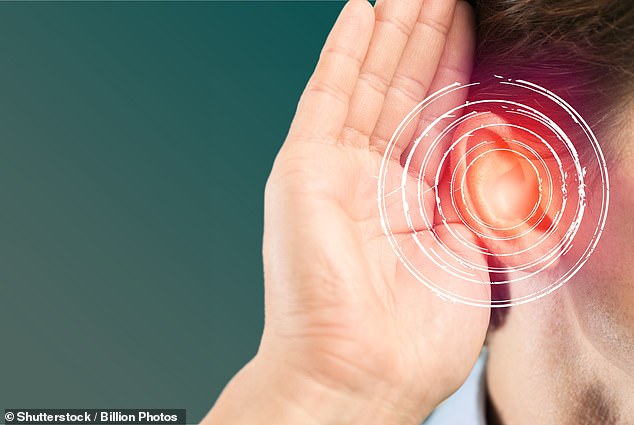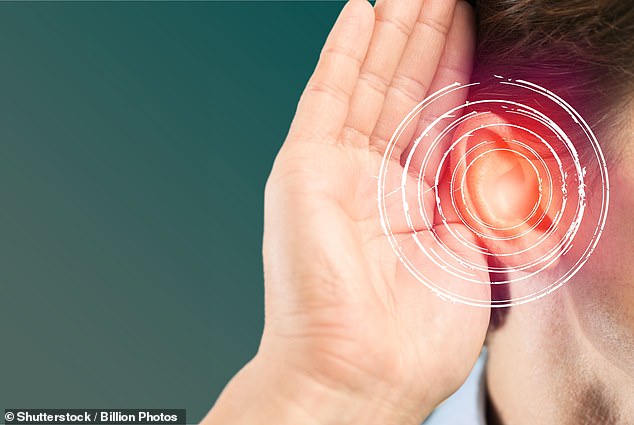Mysterious change that is easy to ignore, but could indicate that you have diabetes without you knowing it



It is a common characteristic of older years or of a youth who has been in the front row at concerts.
But hearing loss can also be a hidden sign that you have diabetes.
Nearly 6 million Britons have diabetes, but charities estimate that 1.2 million people are living with the disease without being diagnosed.
Experts are now urging people to be aware that changes in their hearing could indicate they are among these silent patients.
Rob Ormerod, an audiologist at Bayfields Opticians and Audiologists, explained that health conditions can have a profound impact on the health of our ears.

Rob Ormerod, an audiologist at Bayfields Opticians and Audiologists, explained that health conditions can have a profound impact on the health of our ears
“The high and low blood sugar levels that diabetics experience can affect blood flow and cause damage to the blood vessels in your inner ear, affecting the nerve signals received by your ear,” he said.
This included a change that happens to all of us, usually as we get older, hearing loss.
“Research shows that people with diabetes are twice as likely to experience hearing loss,” Ormerod said.
He added that people may have difficulty realizing they are experiencing hearing loss, given that it slowly increases over time.
‘Hearing loss can often be difficult to detect as it usually happens gradually, but if you have trouble following conversations and find yourself turning up the volume on your devices, it could be related to a deterioration in your hearing,’ he said.
While diabetes is just one of numerous possible causes of hearing loss, Mr Ormerod urged anyone suffering from the symptoms to seek help as treatment can have a profound impact.
Hearing loss is just one ear-related sign that you may be an undiagnosed diabetic.
Ear infections are a relatively common condition, but if you experience them often it could be a sign that you have diabetes.
‘Diabetics are more susceptible to ear infections,’ explains Mr Ormerod.
‘This is caused by reduced blood flow to your ears, which in turn can reduce the strength of your immune system and its ability to fight infections.’
He advised people to take basic precautions such as not inserting cotton swabs into their ears and using earplugs while swimming to avoid ear infections in general.
However, he added that if you are still affected by diabetes, you should contact your GP or pharmacist for advice on investigating possible causes, including diabetes.
Tinnitus, where you hear sounds such as ringing or buzzing in your ear without an external source, can also be a sign that you have diabetes.
Mr Ormerod said: ‘The inner ear, or cochlea, depends on oxygen and blood glucose to function effectively.
‘Because diabetes directly affects glucose levels in the blood due to abnormal insulin levels, this can have an effect on the cochlea and result in tinnitus.’
Although he said tinnitus could be caused by other less serious problems than diabetes, such as the build-up of earwax, it was important that this was investigated to determine the cause and provide advice on treatment.
Diabetes, in which the body does not respond properly to insulin – the hormone that regulates the absorption of sugar in the blood – and cannot properly regulate sugar-glucose levels in the blood, is an increasing health problem.
There are two types of diabetes, called type 1 and type 2.
In type 1, the body does not produce insulin at all and this is thought to be related to genes.

In 2021/2022, almost 4.3 million people were living with diabetes. And another 850,000 people have diabetes and are completely unaware of it, which is worrying because untreated type 2 diabetes can lead to complications including heart disease and stroke.
On the other hand, type 2 is more common and the body is able to produce insulin but does not produce enough or does not work properly.
Factors such as age and obesity increase the risk of developing type 2 diabetes, and this is thought to be increasing in Britain, especially in young adults.
A recent report from Diabetes UK shows there has been a staggering 39 per cent rise in type 2 diabetes in people under the age of 40, a trend attributed to rising obesity rates.
In addition to hearing loss, other symptoms of diabetes include urinating more than normal, feeling constantly thirsty, fatigue, losing weight without trying, itching around the genitals, and blurred vision.




